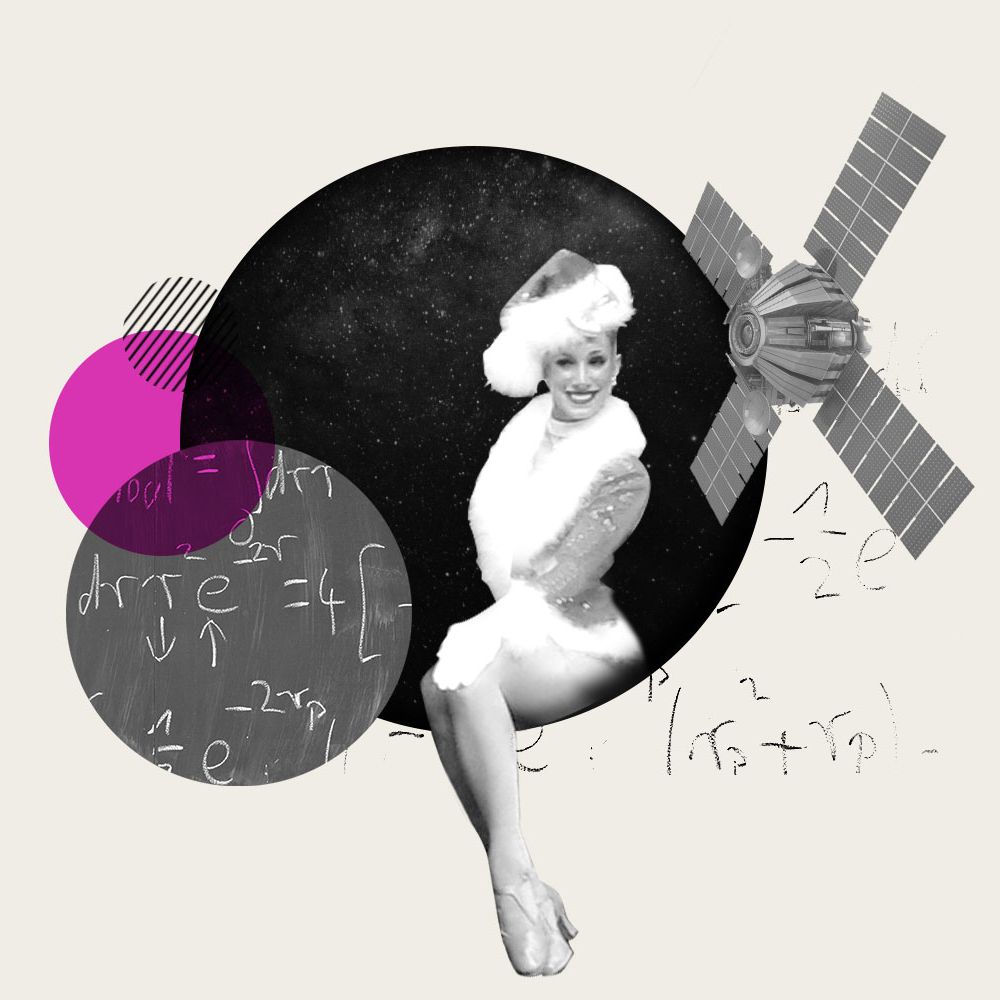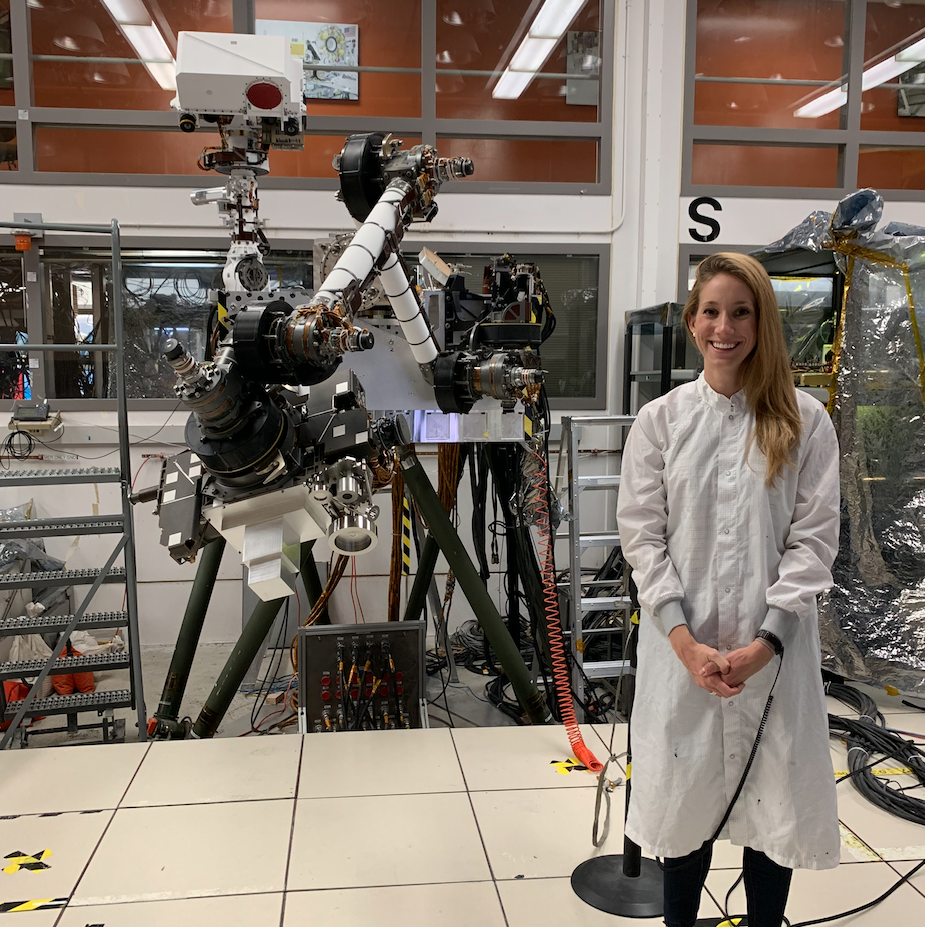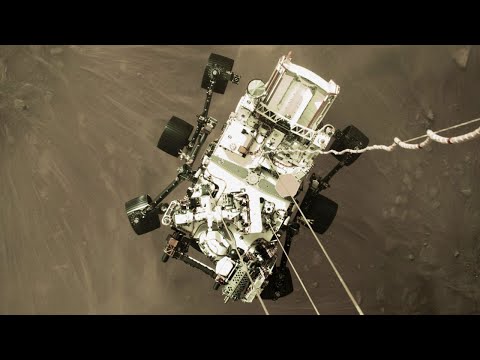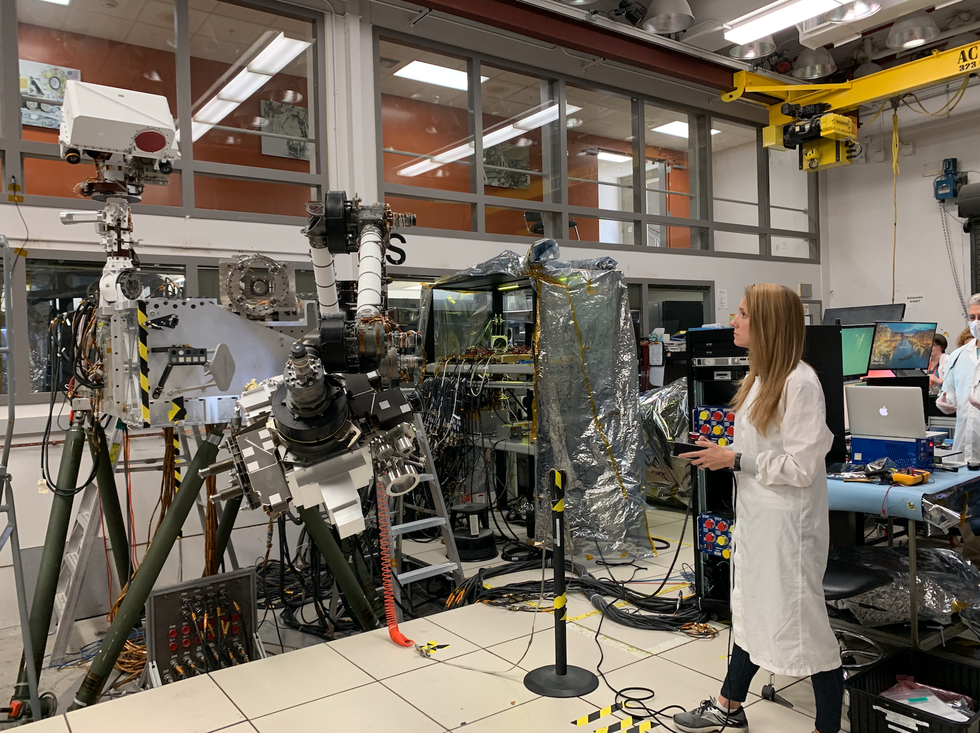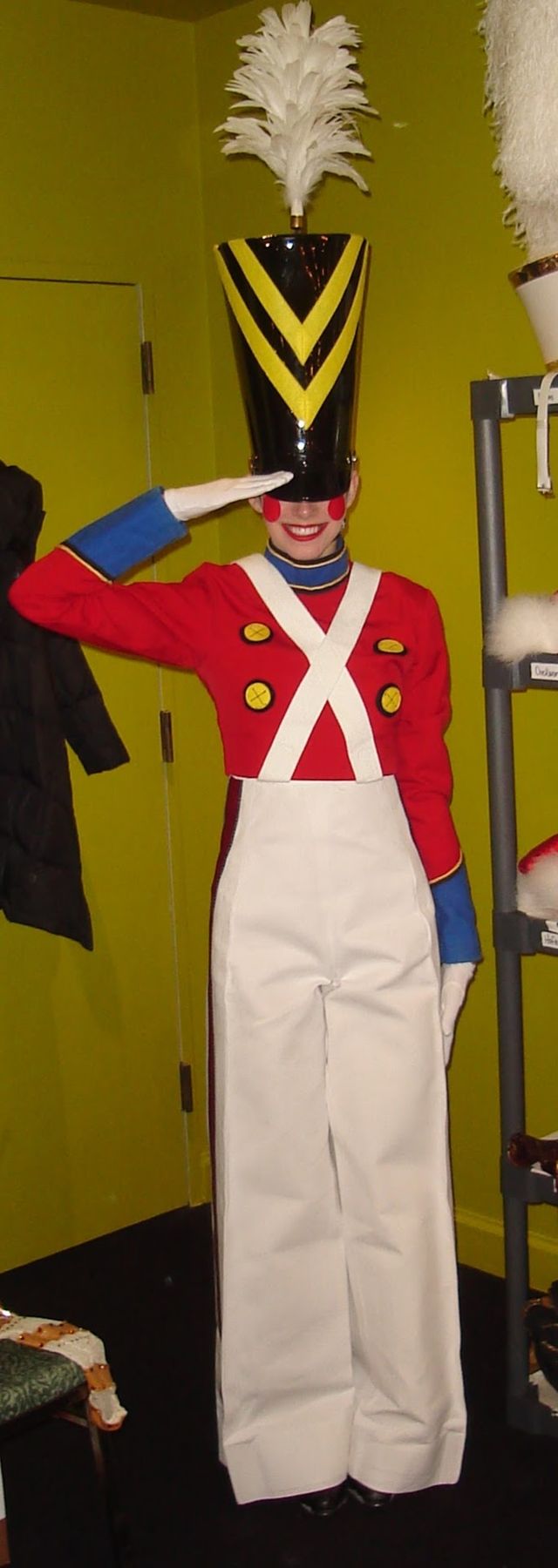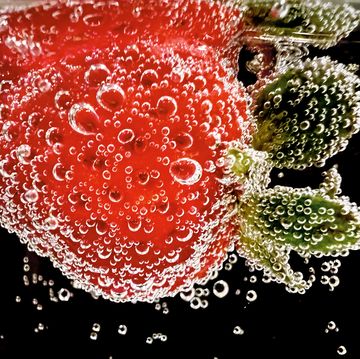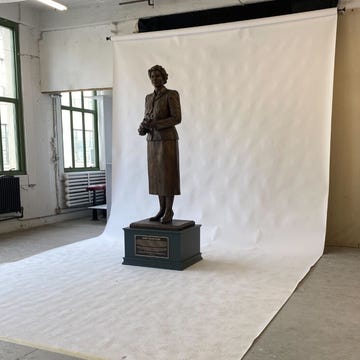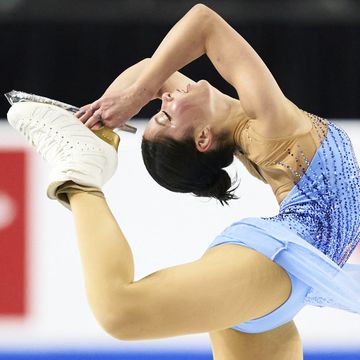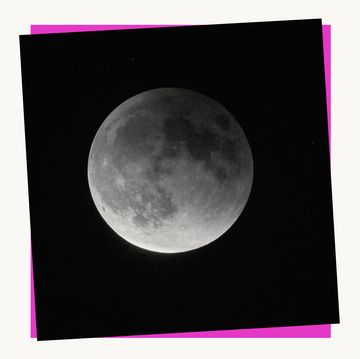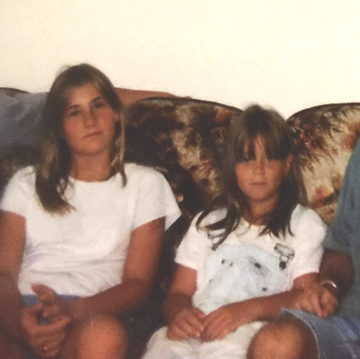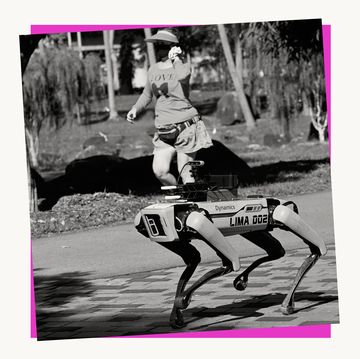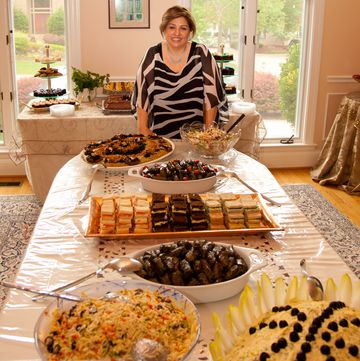Heather Bottom, 31, is a former Radio City Rockette who works as a systems engineer for NASA's Jet Propulsion Laboratory (JPL) in Pasadena, California. The research facility studies all of the planets in the solar system through robotic space missions. Next summer, its nuclear-powered Mars 2o2o rover will probe Martian rocks looking for evidence of past life. Bottom, who oversees systems tests at JPL, takes ELLE.com inside the upcoming trip to the Red Planet.
What's a typical day for you at JPL?
So we have different phases of the mission over the course of the many years it takes to get to launch: Planning, implementation, and testing. Then, once the rover launches, operations begin. The phase of the mission we're in right now is focused on in-depth testing, not only of individual pieces of hardware on the rover, but also flight software and flight hardware. In the morning, I'll usually have a couple of meetings where engineers discuss either strategy or problems that we have encountered during testing from the day before. And then there’s a lot of running around to track down issues and performing various integrated tests. Last night I was in the "test bed" performing rover surface scenario activities until 4 a.m.!
What kinds of tests are you doing on the rover right now?
You can't just send it to Mars. You have to do all these tests beforehand to make sure everything works perfectly, because things can go wrong. For example, during descent and landing, the spacecraft carrying the rover kicks off a ton of autonomous behaviors that bring the rover from the Mars outer atmosphere down to the surface. We have to make sure that all works correctly.
More From ELLE

There's a lot of hype around the rover, because, essentially, it's looking for past life on Mars, right?
Yes, it's looking for past life on Mars, but one of the coolest things about the rover is that it's also actively going to be collecting samples of rock and soil so that we can eventually bring those samples back to Earth and analyze them. When Apollo astronauts went to the moon many years ago, they did bring back samples, so the scientists were able to get a better idea of what the environment was like there. We're trying to do the same thing with Mars, but it's a really difficult engineering problem to figure out how to take test tubes and actually insert Martian soil into them and seal them to bring back to Earth. There's this carousel onboard the rover that rotates and brings forward a test tube. It's this really elegant, beautiful movement it does in order to gather the samples.
And when you say past life... are we talking aliens?
I mean, I hope they find an alien! But, no, not really. Life can be in so many different forms. I'm not a biologist, but there's different ways they can find bacteria or microbes on Mars, and that if they find a certain type of them, that's considered life because they can eventually grow and multiply.
How did you first get interested in space?
I read Brian Greene books when I was younger, like The Elegant Universe and The Fabric of the Cosmos, all these really out-there cosmology books. It was the first time I had read anything like that and was like, "Whoa." It give me an appreciation for hidden dimensions and the unknown, and I became obsessed.
You studied astrophysics at Columbia University in New York City, where you also took a semester off from school to dance as a Rockette.
I've always had this weird left brain, right brain thing where I really love the math and then, at the same time, I feel like I can express myself creatively through dance and performing. With the Rockettes, you need to have an artistic ability to listen to the music and have the rhythm and all of that, but you also need to bring in your more logical side of your brain that can remember those precise moves.
Do you find that you utilize that creative side of your brain at JPL?
We're engineers, but I like to think we're also artists, and we have that creative side that we use to come up with different solutions. If you mention, "Oh, yeah. I like to dance," or, "I play this instrument." I would say so many, like 9 out of 10 people, will be like, "Yeah, me too," or, "I do this." Everybody exercises different parts of themselves. To me, that's what's really special about the environment at JPL.
You've said your team at JPL is incredibly diverse, with a high percentage of female engineers.
Yes! It's something I love about my job. The number of women that I'm working on a day to day basis is much greater than when I worked at other engineering companies. I'm inspired by my female colleagues and my female friends, and I think it's really nice to be able to draw aspects from that, watching them present in meetings or talk to other engineers and thinking, "Oh, that's a great strategy for how to interact with that person," or, "That's a great way to solve that problem!"
This interview has been edited and condensed for clarity.
Rose is a Senior Editor at ELLE overseeing features and projects about women's issues. She is an accomplished and compassionate storyteller and editor who excels in obtaining exclusive interviews and unearthing compelling features.
